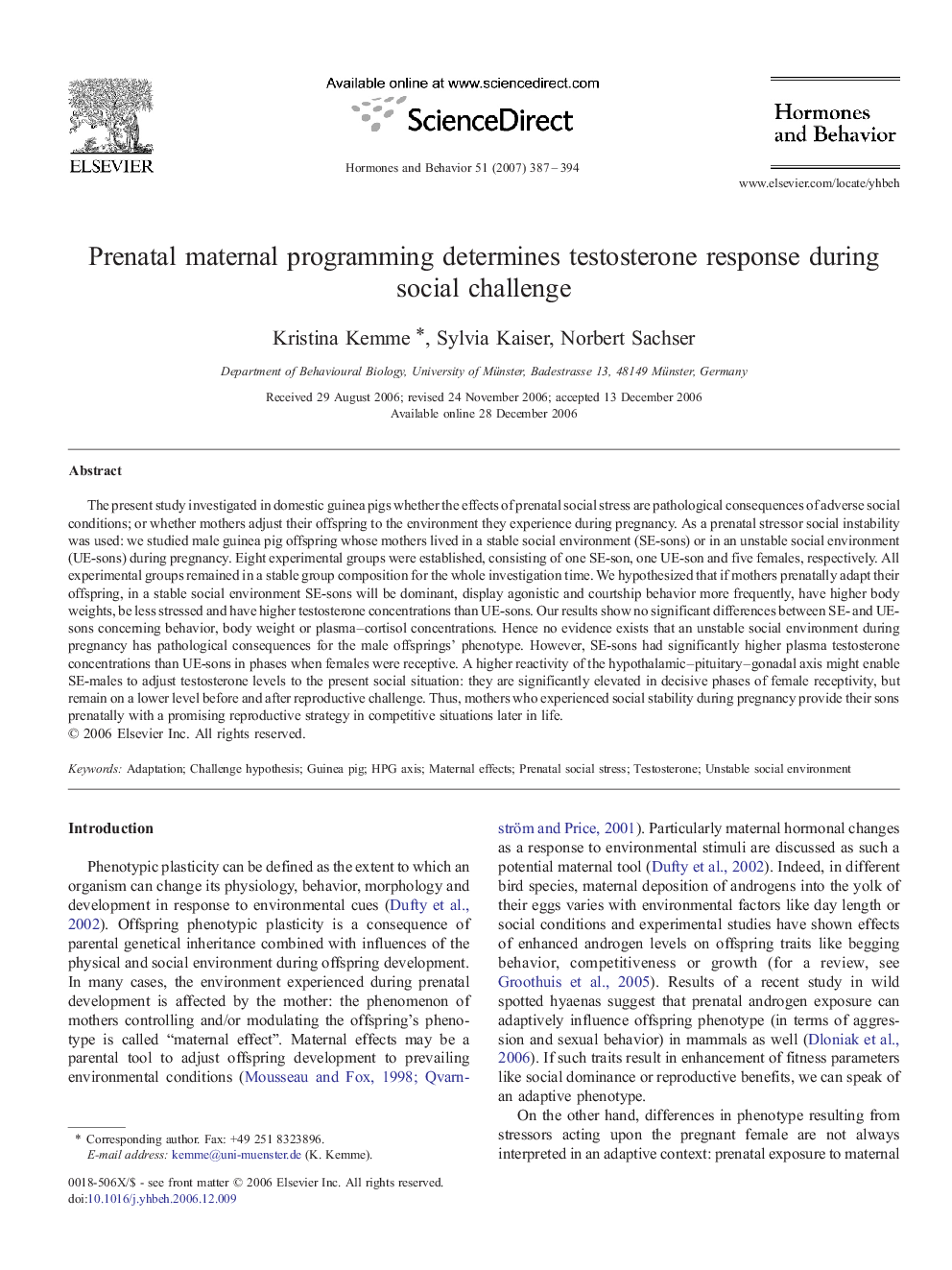| کد مقاله | کد نشریه | سال انتشار | مقاله انگلیسی | نسخه تمام متن |
|---|---|---|---|---|
| 323839 | 540801 | 2007 | 8 صفحه PDF | دانلود رایگان |

The present study investigated in domestic guinea pigs whether the effects of prenatal social stress are pathological consequences of adverse social conditions; or whether mothers adjust their offspring to the environment they experience during pregnancy. As a prenatal stressor social instability was used: we studied male guinea pig offspring whose mothers lived in a stable social environment (SE-sons) or in an unstable social environment (UE-sons) during pregnancy. Eight experimental groups were established, consisting of one SE-son, one UE-son and five females, respectively. All experimental groups remained in a stable group composition for the whole investigation time. We hypothesized that if mothers prenatally adapt their offspring, in a stable social environment SE-sons will be dominant, display agonistic and courtship behavior more frequently, have higher body weights, be less stressed and have higher testosterone concentrations than UE-sons. Our results show no significant differences between SE- and UE-sons concerning behavior, body weight or plasma–cortisol concentrations. Hence no evidence exists that an unstable social environment during pregnancy has pathological consequences for the male offsprings' phenotype. However, SE-sons had significantly higher plasma testosterone concentrations than UE-sons in phases when females were receptive. A higher reactivity of the hypothalamic–pituitary–gonadal axis might enable SE-males to adjust testosterone levels to the present social situation: they are significantly elevated in decisive phases of female receptivity, but remain on a lower level before and after reproductive challenge. Thus, mothers who experienced social stability during pregnancy provide their sons prenatally with a promising reproductive strategy in competitive situations later in life.
Journal: Hormones and Behavior - Volume 51, Issue 3, March 2007, Pages 387–394